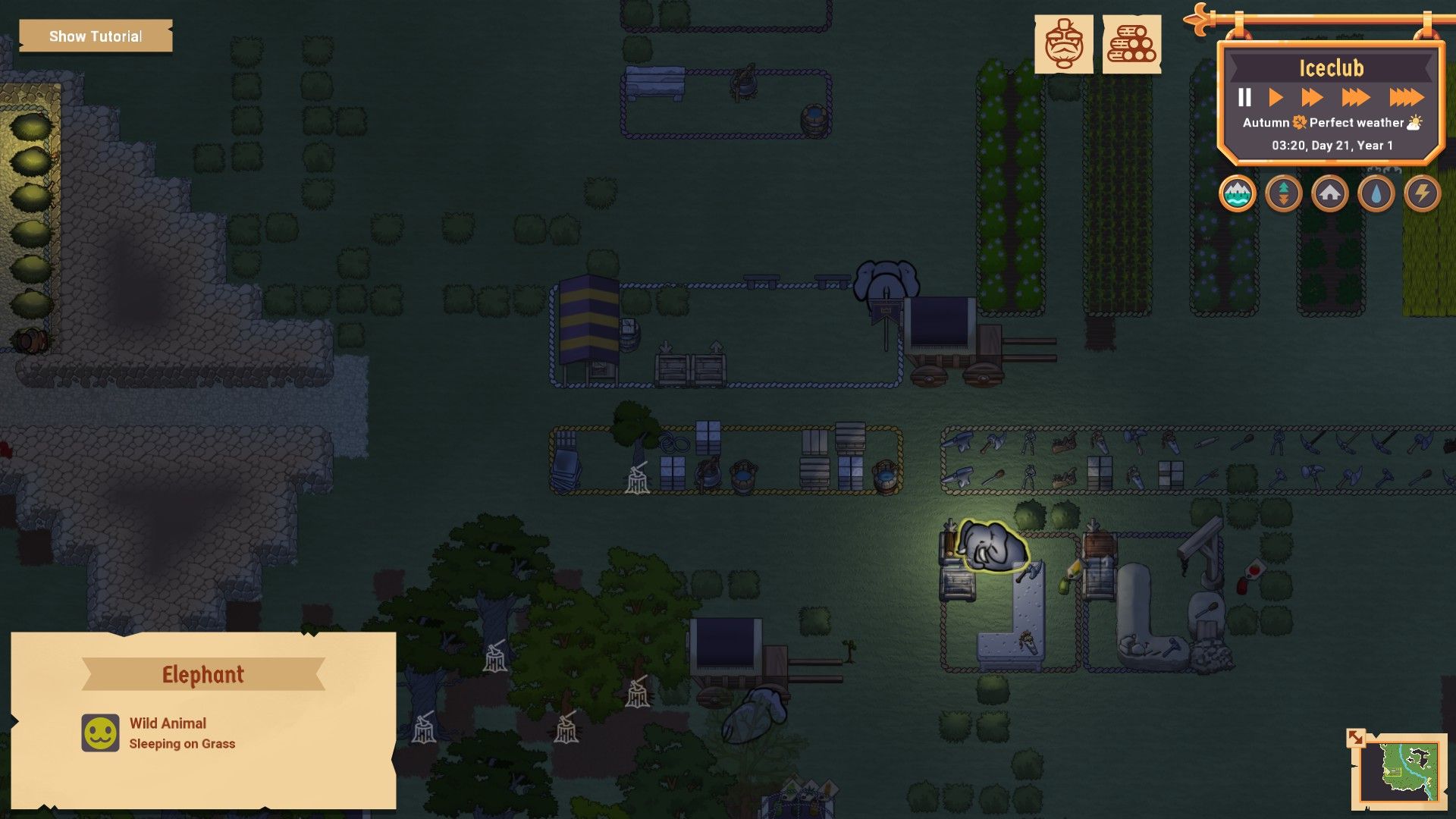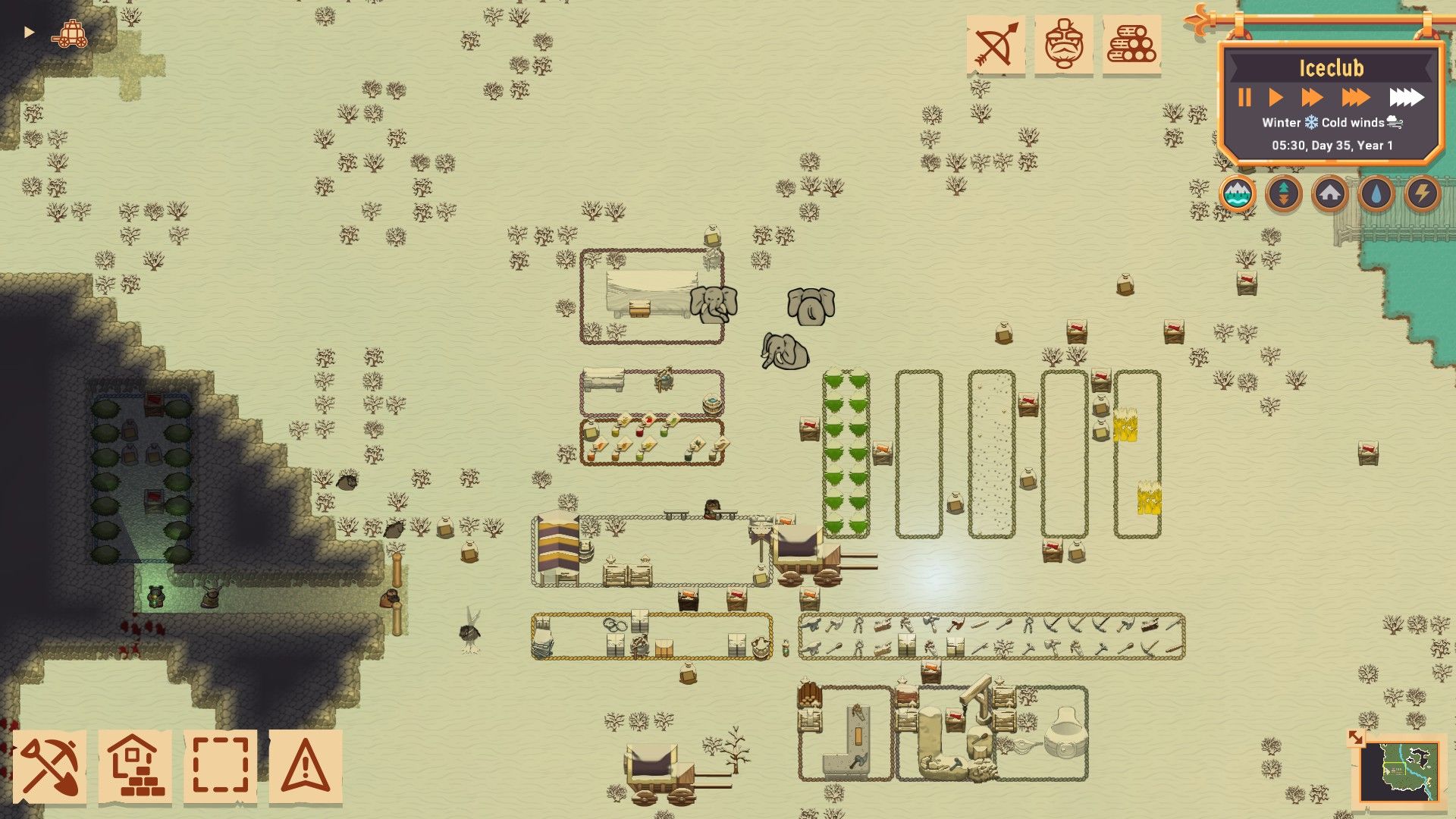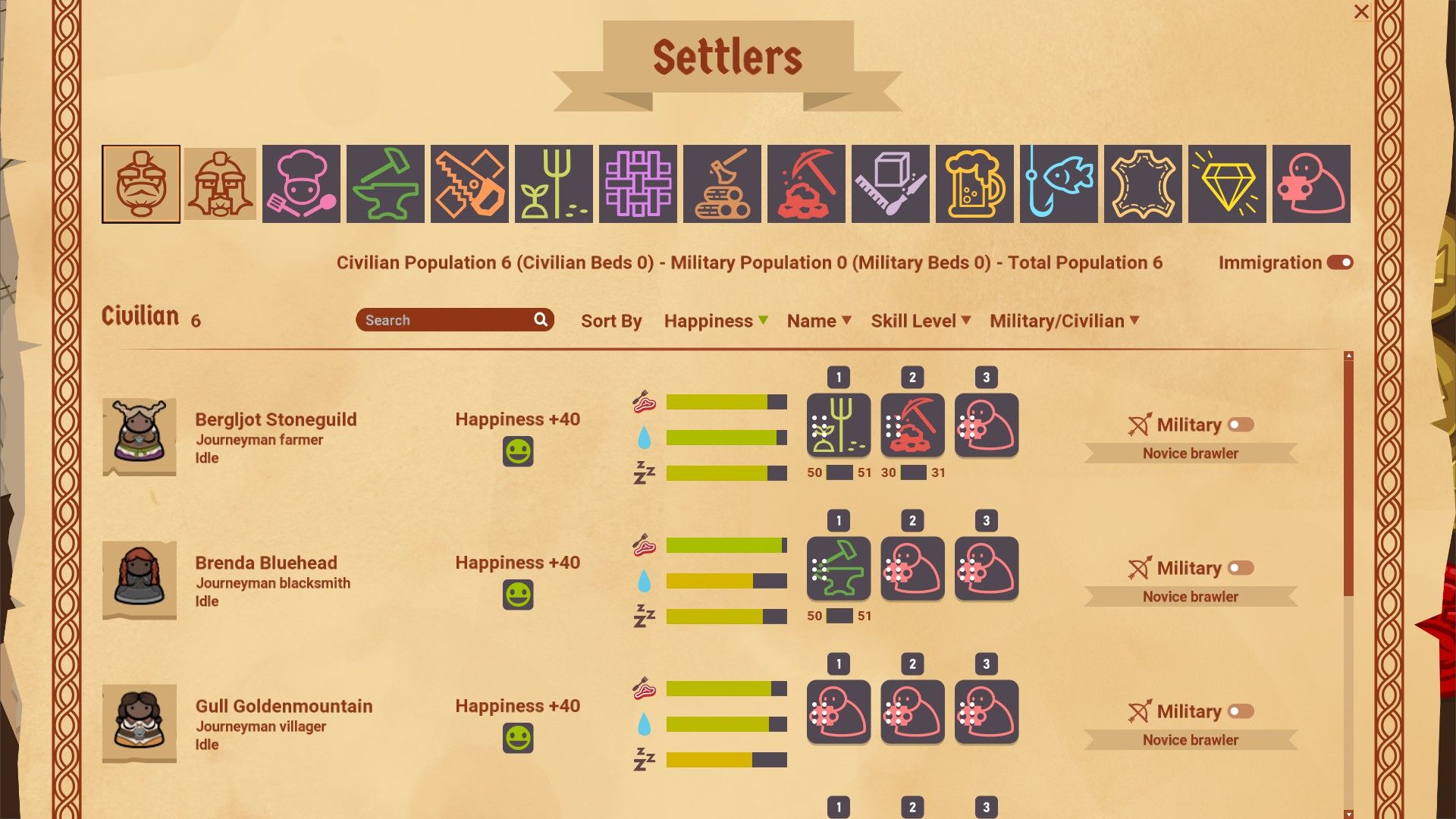Mountaincore’s Intricate Production Chains Need More Threats To Succeed
An eco-focused colony sim designed solely for micromanagement purists

An elephant slept inside my sawmill. While this makes for a fun story, it's missing a punchline. Don't get me wrong, I like a good story. But without an ending to work towards or a challenge to slow me down, Mountaincore felt a little too peaceful.
I had a good time exploring its economy but I wished Mountaincore threw more roadblocks in my way. While I can understand that the game picks cosy over gritty, I rarely felt like the world was resisting my expansion. Maybe I've been spoiled by the games that inspired Mountaincore. It's certainly something that an Early Access title can fix so I'm optimistic about the game's potential.
Mountaincore wears its Rimworld and Dwarf Fortress inspiration well, with simple 2D sprites and elaborate economy chains. This game feels like it was designed for me as someone who grew up playing city-builders like Dungeon Keeper, Cultures, Pharoah and Majesty. Since those games had objectives to work towards and challenges that slowed you down, I felt an odd yearning as I played Mountaincore. It satisfied my city-building itch but I didn't feel like I had earned a happy ending.

Mountaincore lets you build interlocked gears and watch
You start off with a bunch of enterprising dwarves, each with their own skills and preferences. There's no real win condition and Mountaincore doesn't steer you towards any specific path. You're free to set up base wherever you like, though I'd advise starting near a water source and certainly next to mountains. Once you take care of necessities like food and water, its procedurally generated world is yours to explore. While your dwarves are suited to specific professions, Mountaincore lets you switch their jobs as you grow from a bunch of caravans to a bustling town.
Seasons play a big role in Mountaincore, affecting your crops and forcing you to adhere to its rules by stockpiling food before winter strikes. Watching the seasons shift from rain to snow looks pretty despite the game's 2D graphics. Your dwarves' efficiency depends on amenities like food, a bed, and a roof over their heads. Events like death or a missing comfort affect their mood and effectiveness.
Caves made from chipping away at rock formations solved my roof problem. But without pillars to support them, larger rooms were prone to collapse. Speaking of rooms, Mountaincore builds its resource-based economy around "rooms."

Mountaincore's rooms have something for everyone
Rooms range from stockpiles to production like farms and processing facilities like sawmills and smithies. You can place room-specific items inside these marked spaces to enable or boost their output. A kitchen can store multiple cauldrons and a feasting hall can house more than a single table, for instance.
You can change the size and shape of rooms at any time and I loved arranging them to my version of feng shui. For the unaware, feng shui is the Chinese practice of arranging objects with the goal of harmony or, well, good vibes. And it's a curse to which every micromanagement junkie is a slave. Mountaincore plays to its strengths here, especially with the Dungeon Keeper-esque sense of exploration granted by digging away at unexplored caverns.
While existing cave systems did mess with my bad case of feng shui, they drove home the point that the world didn't belong to me. While raiding orcs and monsters were supposed to grant the same feeling, I didn't run into any during my time with the game. It's a work in progress so I'm certain that we'll get more challenges to overcome in the future. The game had a rough development, with a publisher chipping in before pulling out, returning free reign to the developer to build on Mountaincore's original vision (formerly King of the Mountain).

Mountaincore's professions let anyone don multiple hats
Your random set of dwarves might be adept at certain professions and assigning them the right roles provides a significant boost to production. But don't fret if you don't have an expert. A novice can carry out specialized tasks too. While this helps with accessibility, I'd love to see Mountaincore's woodcutters becoming proficient enough to work at sawmills as a specialist instead of its free-for-all job fair approach.
As for how resources move between buildings, import and export pallets let you manage which resource went into which room. While some may see it as an extra step, I loved how intuitive it felt. This extended to trade as well, which helps keep your town stocked with the essentials. You use import and export pallets to determine which excess resource to give away and which resource you wanted in return. While the dwarf AI felt iffy at times, they usually got into the groove of sustaining production chains without too much of a hassle.

Mountaincore could use some extra spice
While I enjoyed exploring Mountaincore's sprawling economy chains, hardly any disruptions meant I couldn't enjoy these victories to the fullest. Fires could be put out with ease and rock collapses are minimized with pillars. The only time an economic slowdown happened was when I forgot to harvest or assign a resource in a specific production chain. Expanding into the unknown didn't feel risky, making the experience less rewarding as a whole. Mountaincore has me questioning how important the idea of challenges preceding payoffs is to me in the video games I play.
Mountaincore releases back into Early Access this May 18th on Steam. While its complex economy chains are great micromanagement hooks, I hope developer Rocket Jump Technology works to flesh out its challenges and chart out an endgame. It's got a promising roadmap with new races and dungeon exploration so I've got my fingers crossed for a colony sim that offers satisfying little wins while being a cosy good time.
